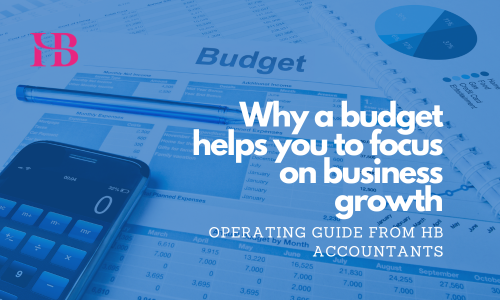In an update for businesses and employees alike, HMRC has revised the advisory fuel rates (AFRs) for company car drivers. These changes, effective from 1st June 2024, will impact all journeys where employees claim back fuel costs from their employer. It is essential for companies to stay informed about these updates to ensure compliance and accurate reimbursement processes.

Key Points of the Update:
- Revised AFRs: HMRC has updated the advisory fuel rates, which are reviewed quarterly. These rates are crucial for reimbursing employees for business travel in company cars.
- Applicability: The revised rates apply in two main scenarios:
- When employers reimburse employees for business travel using company cars.
- When employees are required to repay the cost of private travel in company cars.
Why This Matters:
For Employers:
Staying compliant with HMRC’s AFRs is critical to avoid any discrepancies. Accurate reimbursement ensures that employees are fairly compensated for their business travel expenses without overburdening the company’s finances.
For Employees:
Understanding the revised rates helps employees accurately claim their fuel expenses and ensures they are not out-of-pocket for business travel. It also clarifies their obligations when it comes to repaying costs for private travel.
Next Steps:
- Review and Adjust Policies: Employers should review their current reimbursement policies and adjust them according to the new AFRs.
- Communicate with Employees: Ensure that all employees are aware of the new rates and understand how to claim their expenses correctly.
- Stay Informed: Since these rates are reviewed quarterly, it is important to stay updated on any further changes to avoid non-compliance.
Updated Advisory Fuel Rates from 1 June 2024
The advisory fuel rates are worked out from the fuel prices in these tables.
Petrol
| Engine size (cc) | Mean MPG | Fuel price (per litre) | Fuel price (per gallon) | Rate per mile | Advisory fuel rate |
|---|---|---|---|---|---|
| Up to 1400 | 49.5 | 149.5 pence | 679.8 pence | 13.7 pence | 14 pence |
| 1401 to 2000 | 42.1 | 149.5 pence | 679.8 pence | 16.2 pence | 16 pence |
| Over 2000 | 26.7 | 149.5 pence | 679.8 pence | 25.5 pence | 26 pence |
Diesel
| Engine size (cc) | Mean MPG | Fuel price (per litre) | Fuel price (per gallon) | Rate per mile | Advisory fuel rate |
|---|---|---|---|---|---|
| Up to 1600 | 56.7 | 157.6 pence | 716.6 pence | 12.6 pence | 13 pence |
| 1601 to 2000 | 48.0 | 157.6 pence | 716.6 pence | 14.9 pence | 15 pence |
| Over 2000 | 36.3 | 157.6 pence | 716.6 pence | 19.7 pence | 20 pence |
LPG
| Engine size (cc) | Mean MPG | Fuel price (per litre) | Fuel price (per gallon) | Rate per mile | Advisory fuel rate |
|---|---|---|---|---|---|
| Up to 1400 | 39.6 | 98.3 pence | 446.9 pence | 11.3 pence | 11 pence |
| 1401 to 2000 | 33.7 | 98.3 pence | 446.9 pence | 13.3 pence | 13 pence |
| Over 2000 | 21.3 | 98.3 pence | 446.9 pence | 21.0 pence | 21 pence |
Electric
From 1 June 2024, the advisory electric rate for fully electric cars will be 8 pence per mile.
Hybrid cars are treated as either petrol or diesel cars for advisory fuel rates.
The advisory fuel rates for petrol, LPG and diesel cars are shown in these tables.
You can use the previous rates for up to 1 month from the date any new rates apply.
From 1 June 2024
| Engine size | Petrol — rate per mile | LPG — rate per mile |
|---|---|---|
| 1400cc or less | 14 pence | 11 pence |
| 1401cc to 2000cc | 16 pence | 13 pence |
| Over 2000cc | 26 pence | 21 pence |
| Engine size | Diesel — rate per mile |
|---|---|
| 1600cc or less | 13 pence |
| 1601cc to 2000cc | 15 pence |
| Over 2000cc | 20 pence |
| Electric — rate per mile |
|---|
| 8 pence |
For detailed information on the revised rates and to see how they may affect your business, you can visit the official HMRC website.
HB Accountants are here to help you and your business. We keep businesses and invidiuals informed, keep you and or your business compliant. If you would like to speak to us about how we can help you or your business, get in touch with us on 01992 444466..
The information contained above is for general guidance purposes only. Whilst every effort has been made to ensure the contents are accurate, please note that each individual has different circumstances and it is essential that you seek appropriate professional advice before you act on any of the information contained herein. HB Accountants can accept no liability for any error.
Read our latest updates here
- HMRC Advisory Fuel Rates (AFRs) from 1st June 2025
 HMRC has published the latest Advisory Fuel Rates (AFRs) which apply from 1 June 2025. AFRs are the official rates used when reimbursing employees for business mileage in company cars. They’re reviewed every quarter (February, May, August and November) and adjusted in line with fuel prices.
HMRC has published the latest Advisory Fuel Rates (AFRs) which apply from 1 June 2025. AFRs are the official rates used when reimbursing employees for business mileage in company cars. They’re reviewed every quarter (February, May, August and November) and adjusted in line with fuel prices. - How an audit can help your business (and actions you can take to make it go smoothly too!)
 An audit may be a legal requirement for your business but a well managed audit can also boost your business growth and ensure that it is operating in the best way possible.
An audit may be a legal requirement for your business but a well managed audit can also boost your business growth and ensure that it is operating in the best way possible. - Why a budget helps you to focus on business growth
 Are you looking for clarity over the future direction of your business? Do you want to know the actions you should take in order to grow your business? Then consider taking time to create a budget for your business.
Are you looking for clarity over the future direction of your business? Do you want to know the actions you should take in order to grow your business? Then consider taking time to create a budget for your business. - How a SME Owner Can Create More Time
 SME owners and managers – are you part of the one in five small and medium-size enterprise managers that work on average an additional 3 hours a day on a regular basis? Or one of the 33% that claim that there just aren’t enough minutes in a day to get everything completed? (The Independent study … Continue reading
SME owners and managers – are you part of the one in five small and medium-size enterprise managers that work on average an additional 3 hours a day on a regular basis? Or one of the 33% that claim that there just aren’t enough minutes in a day to get everything completed? (The Independent study … Continue reading - A New Academic Year for our Student in Zambia
 As the new academic year unfolds in Zambia, we are delighted to share an update about our sponsored student, Getrude. Currently in her second year at Chalimbana University, Gertrude is studying Business Administration in Accounting and Finance.
As the new academic year unfolds in Zambia, we are delighted to share an update about our sponsored student, Getrude. Currently in her second year at Chalimbana University, Gertrude is studying Business Administration in Accounting and Finance.

